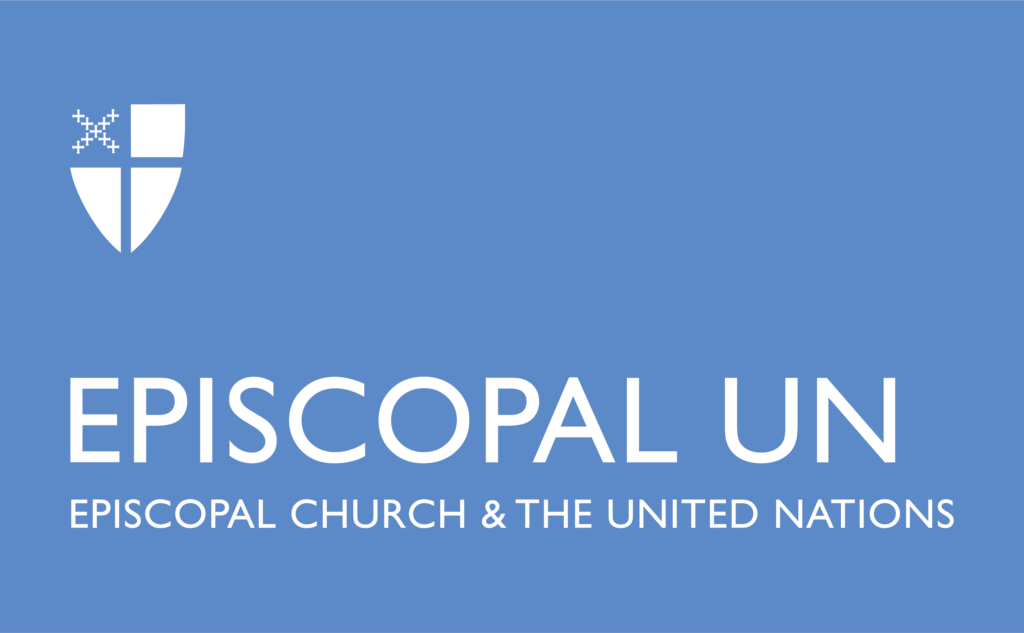Her Story: #CSW62 – The Reverend Stacy Walker, Diocese of Chicago
During the recent United Nations Commission on the Status of Women’s 62nd session (CSW62), our Church was present through the voices of many Episcopalians. Our blog series “Her Story: #CSW62” features the individual voices and stories of these Episcopalians, in their own words. In doing so, we not only amplify our own voices, but join up with those in our wider ecumenical family through Ecumenical Women, a coalition of faith-based Christian organizations who feature the same theme. Follow our stories via the Episcopal Church and the UN blog, Facebook and Twitter platforms and hashtags #EpiscopalCSW and #EpiscopalUN. Interested in guest blogging? Contact us at Lynnaia Main.
Today we feature guest blogger the Reverend Stacy Walker from the Diocese of Chicago, a delegate with the Presiding Bishop’s delegation of The Episcopal Church. She is also the Rector of St. Charles Episcopal Church in the Diocese of Chicago:
An important part of my call to ministry as a priest was in my experience working with youth at two parishes in my twenties. In my early twenties, I assisted our deacon at St. John the Evangelist in Milwaukie, Oregon with planning team building and social activities for our acolytes. In my mid-twenties, I revived a junior high and senior high youth group and Sunday School class at my home parish of St. John’s in Dryden, Michigan. I loved working with youth because I often felt left out of the conversation as a youth in the Episcopal Church. I experienced the sudden death of my father when I was a freshman in high school. I knew that people in the church loved me and cared about me, but I didn’t feel I had a place to speak about this profound experience and its effect on my spiritual life. When in my mid-twenties I heard the call from Jesus to serve him in his church it was in the context of a youth event. I was in a place where I was lending my voice as a young adult to lift the voices of the youth in our church, so that their spiritual concerns and experiences could be heard and validated. I suppose one could say this was my first foray into advocacy work within the Episcopal Church.
Children and youth of all genders are an often-marginalized voice in the life of the Church. Although we may put the spotlight on their activities in the Church we often prescribe the roles we want children to fill, and the responses we would like to hear from them. I think we are missing a great gift when we do not listen to and seek to understand our children and youth. As a girl, this was certainly my experience. I have understood my call as a priest to be one of listening to the marginalized, and then gently and persistently bringing these voices to be heard by the Church. Often the things the marginalized say is not what most of us want to hear. It is difficult to acknowledge that for years the Church has neglected to listen to those who have suffered oppression because of their gender, age, race, sexuality, social class, etc. And yet this humble listening and gracious acknowledgement of our shortcomings is where liberation is to be found through the grace of God for the whole Church.
The voices of rural women and girls are among the least listened to voices in the Church, much less in the rest of society. I believe firmly that through the grace and mercy of God the Church can repent of her neglect to hear the voices of women and girls and instead of turning away, turn toward these women and girls and hand them the microphone to speak their truth. From this place of honesty and authenticity, the Church will grow and be healed. Not only that, the Episcopal Church has a voice that is listened to in the world. This came home for me very succinctly in my experience as a delegate at UNCSW59 in 2015. Many on our delegation experienced curiosity from fellow UN delegates when we identified ourselves as Episcopalians. What could the Church possibly have to say about maternal health, for example? Quite a lot as it turns out. Churches minister with many people who understand advocacy as an important part of living out our faith for the sake of all people of myriad faiths and beliefs. The voice of the Church is also an important reminder to be heard at the UN and in our local contexts that faith and belief identity is an integral to the lives of women and girls, and their families that we are advocating for. In other words, the spiritual life cannot be separated from the conversations about policy without detriment to the very women and girls we seek to empower.
As a priest in that first UNCSW Episcopal delegation I was not at first sure exactly what my role was supposed to be. I was not there to be a chaplain, of that I was certain. I have come to understand that part of my role outwardly was to be a witness to the importance of faith in the life of women and girls. This was particularly visible when I wore my clerical collar at these various meetings and conversations. Another part of my role was to be a witness within our delegation to our roots of advocacy, which are found in the way of Jesus, and in the other prophetic scriptures of the Bible. This witness within the Church of “why we do what we do in the public square” has become a clear calling within my priestly ministry because of my experience at UNCSW59. It is my understanding that priests are to call the faithful to wake up to the kingdom of God happening in the world right now. This happens when Episcopalians enter the public square as advocates for liberation for the oppressed and marginalized. Priests are also to enter the public square themselves as advocates to serve as an example to the flock entrusted to them by God of how the voice of the Church has a necessary place in the world.
I am excited to serve as the Rector of a congregation that is willing to lift up the voices of children and youth. The support for youth to engage in mission, and in spiritual enrichment is strong. We also have a strong contingent of adults who have been working faithfully in traditional feeding and service ministries but who long for a deeper connection with the people we serve, and also long to see real positive change in the lives of these people. I think the people of St. Charles are on the brink of becoming advocates as the Episcopal Church in the public square. When I return from UNCSW62 I look forward to following up on the work of the delegation in my neighborhood. And I look forward to prayerfully walking with my people in St. Charles and the Diocese of Chicago to advocate for the empowerment of women and girls.


